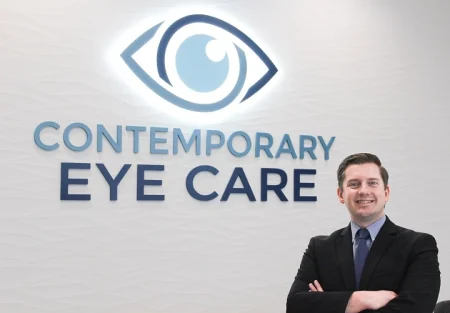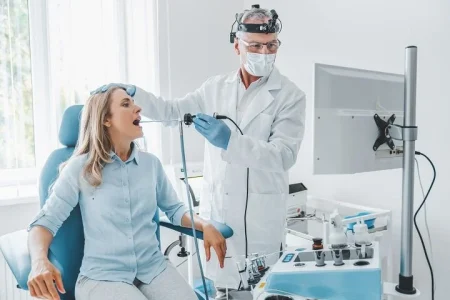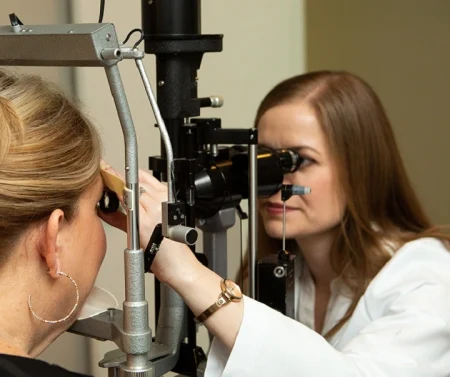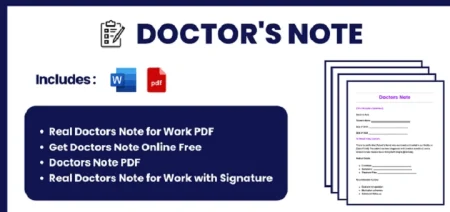In the realm of employment, situations may arise where you’re unable to attend work due to health reasons. Whether it’s a sudden illness, a medical appointment, or a necessary recovery period, navigating these circumstances often involves obtaining a doctor’s note. This comprehensive guide is designed to walk you through everything you need to know about doctor’s notes for work, from their purpose and legal considerations to how to obtain one and common FAQs.
Understanding Doctor’s Notes
1.1 What is a Doctor’s Note? A doctor’s note, also known as a medical certificate or physician’s statement, is a document provided by a healthcare professional that verifies an individual’s medical condition and recommends the necessary accommodations, such as time off work or specific restrictions.
1.2 Purpose of Doctor’s Notes
- Verification: Employers require doctor’s notes to verify the authenticity of an employee’s absence due to illness or injury.
- Legal Protection: Doctor’s notes provide legal protection for both employees and employers by documenting medical necessity and ensuring compliance with company policies and labor laws.
- Accommodation: They help employers understand the nature of an employee’s condition and make appropriate accommodations to support their recovery and well-being.
Legal Considerations

2.1 Employee Rights
- FMLA (Family and Medical Leave Act): In the United States, eligible employees have the right to take up to 12 weeks of unpaid leave for medical reasons under FMLA. A doctor’s note may be required to qualify for FMLA leave.
- ADA (Americans with Disabilities Act): Employers must provide reasonable accommodations to employees with disabilities under the ADA. A doctor’s note may outline these accommodations.
- Company Policies: Review your company’s policies regarding sick leave and doctor’s notes to ensure compliance with internal regulations.
2.2 Employer Obligations
- Privacy: Employers are legally obligated to maintain the confidentiality of medical information obtained through doctor’s notes.
- Accommodation: Employers must reasonably accommodate employees’ medical needs as outlined in doctor’s notes, unless it poses undue hardship on the business.
Obtaining a Doctor’s Note
3.1 Doctor-Patient Relationship
- Establishment: A valid doctor’s note requires an existing doctor-patient relationship, meaning the healthcare professional issuing the note has treated or examined the individual.
- Telemedicine: In some cases, telemedicine appointments may suffice for obtaining a doctor’s note, especially for minor illnesses or follow-up consultations.
3.2 Contents of a Doctor’s Note
- Patient Information: Name, date of birth, and contact information of the patient.
- Medical Provider Information: Name, credentials, and contact details of the healthcare provider issuing the note.
- Date of Visit: The date of the medical examination or consultation.
- Diagnosis: A brief description of the medical condition or reason for the visit.
- Recommendations: Any recommendations or restrictions regarding work duties, including time off if necessary.
- Signature: The signature of the healthcare provider along with their professional seal or stamp, if applicable.
Common FAQs
4.1 Do I Always Need a Doctor’s Note for Work? While it depends on your employer’s policies, many companies require a doctor’s note for extended absences or when requested by management. Check your employee handbook or consult with HR for specific requirements.
4.2 Can I Use a Family Member’s Doctor’s Note? Using a family member’s doctor’s note is generally not recommended as it may raise questions about the validity and authenticity of the document. It’s best to obtain a doctor’s note from your own healthcare provider.
4.3 What If I Can’t Afford to See a Doctor? If financial constraints prevent you from seeking medical attention, consider community health clinics, free or low-cost healthcare programs, or telemedicine services that offer affordable consultations.
4.4 Can My Employer Contact My Doctor? Employers are generally not allowed to contact your doctor directly without your consent due to medical privacy laws like HIPAA (Health Insurance Portability and Accountability Act). However, they may request additional information or clarification from you regarding the doctor’s note.
Navigating the realm of doctor’s notes for work can be complex, but understanding their purpose, legal considerations, and the process of obtaining one is essential for both employees and employers. By adhering to relevant laws and company policies, individuals can ensure their rights are protected while maintaining open communication with their employers regarding their medical needs. Whether it’s a short-term illness or a chronic condition, a doctor’s note serves as a vital tool in facilitating accommodation and support in the workplace.








